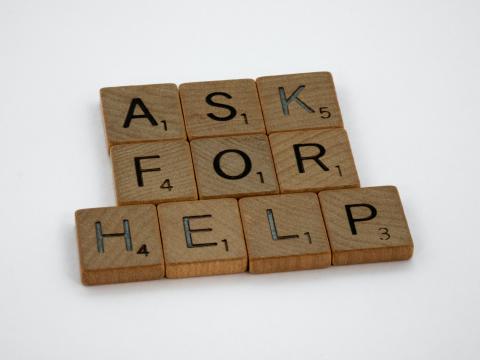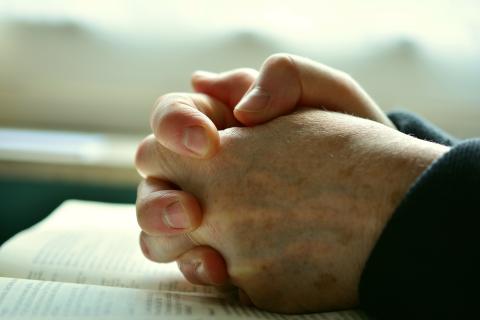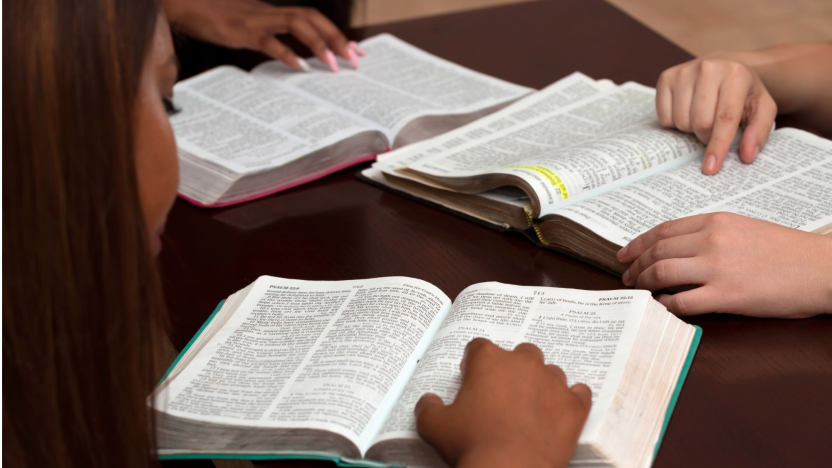There's a saying from the Maasai tribe of Uganda that they seek the good of every member of the tribe. Upon greeting each other, the Maasai would ask, “How are the children?" The response would be, "All the children are well." When it is well with you and your children, it is well with the collective group.
"The welfare of each is bound up in the welfare of all" is a saying attributed to Hellen Keller.1 I often think of what that means when we easily give up on each other. Can we say that those around us are well when we have not taken the time to care for those hurting around us? When we approach the holidays or the beginning of a new year, many feel the stress of aloneness and deferred dreams. The holidays and the start of a new year are when mental health crises manifest.

Soon the Son of Man will burst the clouds of heaven and return to take His children home. While we wait and get ready for Jesus' soon return, we should focus on the interests of each other, especially those who are alone or have few friends. Because the mind is the seat of thoughts and emotions, it is where the adversary of souls seeks to control. Mental crises are not ascribed to a selected population or demographics. If you have a mind, you are susceptible, and so are your neighbors, relatives, friends, and church brethren.
God’s Plan for Each of Us
The Bible teaches that if one hurts, we should all care. It is written, "Let each of you look out not only for his own interests, but also for the interests of others” (Philippians 2:4).

The World Health Organization states, "Mental health is a lot more than the absence of illness: it is an intrinsic part of our individual and collective health and well-being."2 Here are some current theories generally held on the factors contributing to a mental health crisis and why we should care. They are our genetic makeup; environmental factors; our brain circuits regulating our mood, energy, thinking, and biological rhythms. Let's remember to check in on each other. During yearly holidays, birthday celebrations, or other festive occasions, what a blessing it is to celebrate together with family and friends. But even while we do this, let us take a moment to call, think of, pray for, and contact someone on the fringes of our core group to give some encouragement and cheer.
The Loneliness Crisis
A report published in 2015 states that "Loneliness increases the risk of death by 26%"3 The report further says that "Social isolation — or lacking social connection — and living alone were found to be even more devastating to a person's health than feeling lonely, respectively increasing mortality risk by 29% and 32%."
There need not be a public health issue of loneliness among God's people and those surrounding them. We are asked to look out for the welfare of each other. This is the nature of God's Kingdom. Abundance, health, and spiritual and emotional wellness are the promises of here and the hereafter.
Learning to Care
So, what, then, is a mental health illness? How will we know what someone diagnosed with a mental illness is experiencing? According to the National Alliance on Mental illness, "A mental illness is a condition that affects a person's thinking, feeling, behavior or mood; That deeply impacts day-to-day living, and may also affect the ability to relate to others. Mental health conditions are far more common than you think. People don't like to or are scared to talk about them."4
Some mental health conditions may be anxiety disorders: ADHD, Bipolar Disorder, Borderline Personality Disorder, Depression, Dissociative Disorders, Eating Disorders, Obsessive-compulsive Disorder, Posttraumatic Stress Disorder, and Schizophrenia. Whatever your thoughts on the subject, there are hurting people who need the Lord. Won't you be the helping hand and cheerful voice this year for your neighbors, friends, family members, and others God puts in your path?

Call to Action
If you don't know where to start. Use this principle: look for the best qualities in the person and ask God to help you. "Finally, brethren, whatsoever things are true, whatsoever things are honest, whatsoever things are just, whatsoever things are pure, whatsoever things are lovely, whatsoever things are of good report; if there be any virtue, and if there be any praise, think on these things" (Philippians 4:8 KJV).

Unless noted otherwise, scripture taken from the New King James Version®. Copyright © 1982 by Thomas Nelson. Used by permission. All rights reserved.
- https://en.wikipedia.org/wiki/Helen_Keller
- https://www.who.int/teams/mental-health-and-substance-use/world-mental-health-report
- https://time.com/3747784/loneliness-mortality/
- https://www.nami.org/About-Mental-Illness/Mental-Health-Conditions




